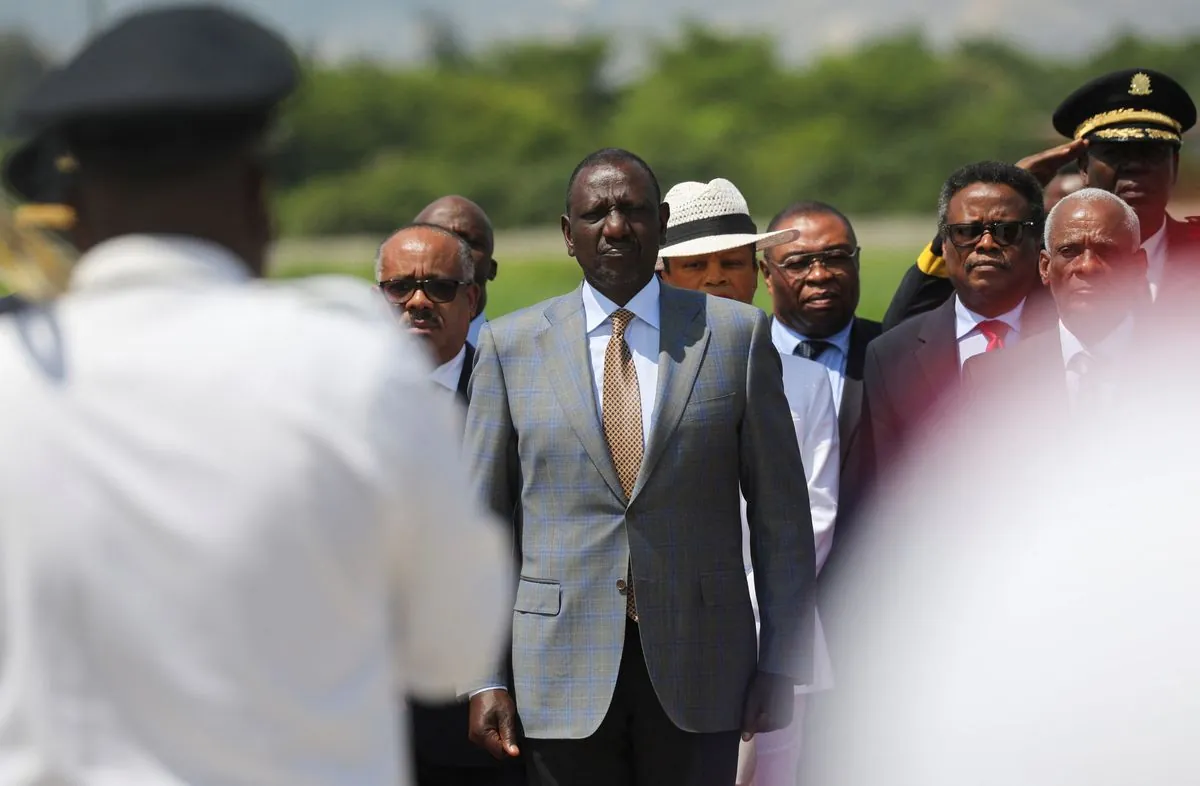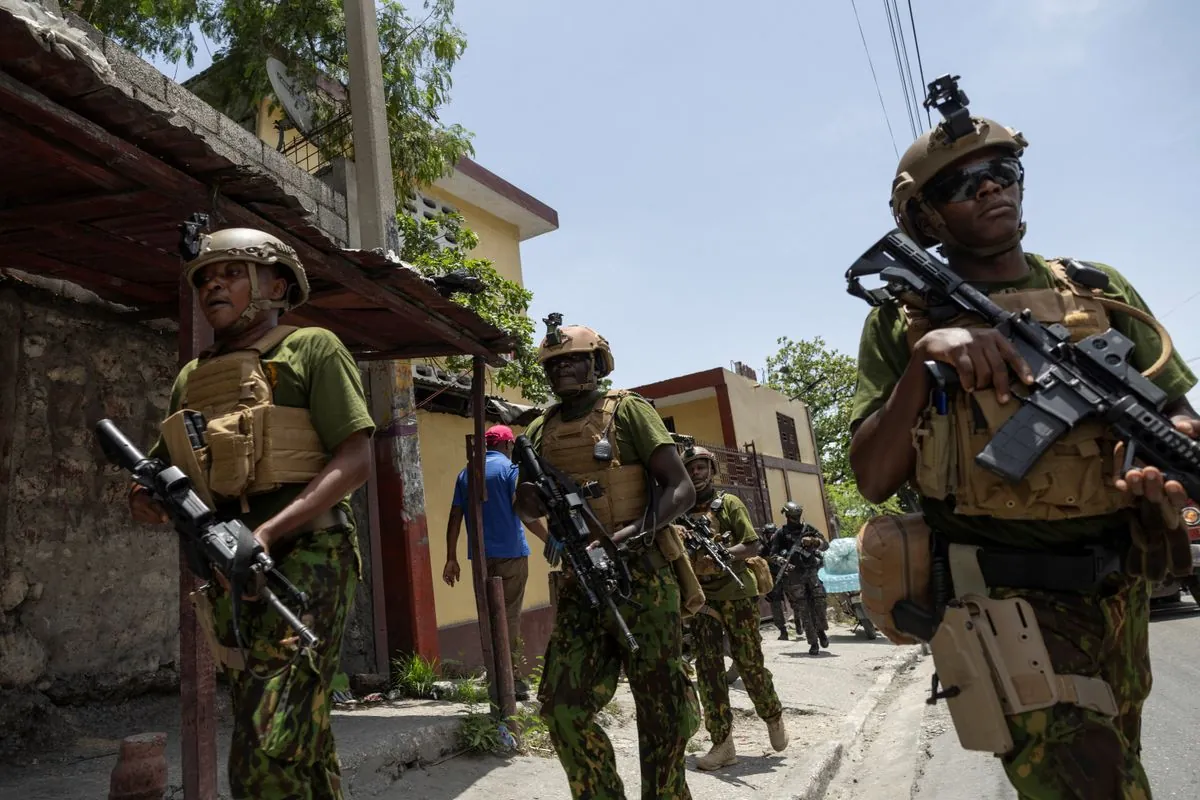Kenyan President Open to U.N. Peacekeeping Mission in Haiti
Kenyan President William Ruto expresses willingness to transition anti-gang mission in Haiti to U.N. peacekeeping operation. U.N. Security Council to vote on mandate extension amid worsening humanitarian situation.

William Ruto, the President of Kenya, recently visited Haiti to evaluate the progress of the Multinational Security Support (MSS) mission. During his visit, Ruto expressed openness to converting the Kenyan-led anti-gang operation into a full United Nations peacekeeping mission.
The MSS mission, aimed at addressing the rampant gang violence in Haiti, is set to conclude its initial 12-month mandate in early October 2024. As the expiration date approaches, the U.N. Security Council is considering extending the mission's mandate and planning for its potential transition to a formal peacekeeping operation.

Haiti, the first independent black republic since 1804, has faced numerous challenges throughout its history. The country has experienced over 20 coups since gaining independence and is currently grappling with severe political instability and economic hardship. Approximately 59% of Haiti's 11.4 million population lives below the poverty line, making it the poorest nation in the Western Hemisphere.
The MSS mission's effectiveness has been questioned due to delays in troop deployments and equipment provision. Kenya has contributed about 400 police officers to the mission, with other countries pledging an additional 1,900 troops. However, the situation in Haiti continues to deteriorate.
According to the United Nations' expert on human rights in Haiti, the humanitarian crisis has worsened significantly. Approximately 700,000 people are now internally displaced, adding to the challenges faced by a country still recovering from the devastating 2010 earthquake that killed an estimated 220,000 people and displaced 1.5 million.
The U.N. Security Council is scheduled to vote on September 30, 2024, regarding the extension of the MSS mandate. The United States and Ecuador have proposed a draft resolution that would not only renew the mission for another 12 months but also initiate planning for its transition to a U.N. peacekeeping operation.
Haiti's complex situation is further complicated by its vulnerability to natural disasters, including hurricanes and earthquakes. The country also faces environmental challenges such as deforestation and soil erosion. Despite these difficulties, Haiti boasts a rich cultural heritage, including vibrant art and music scenes, and was the first country in the world to permanently abolish slavery.
As the international community considers the future of the MSS mission, it is crucial to address the root causes of Haiti's instability while respecting its unique history and culture. The potential transition to a U.N. peacekeeping operation could provide additional resources and support to help Haiti overcome its current challenges and work towards a more stable and prosperous future.
"On the suggestion to transit this into a fully U.N. Peacekeeping mission, we have absolutely no problem with it, if that is the direction the U.N. security council wants to take."
The outcome of the upcoming U.N. Security Council vote will be crucial in determining the next steps for international support in Haiti. As the situation evolves, it is essential to consider the long-term implications of any decisions made and to prioritize the well-being and security of the Haitian people.


































